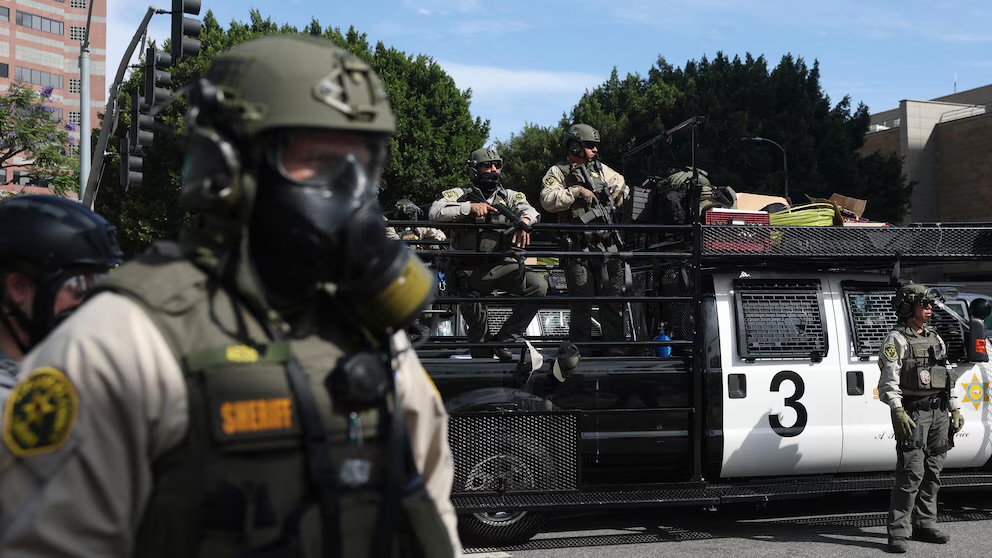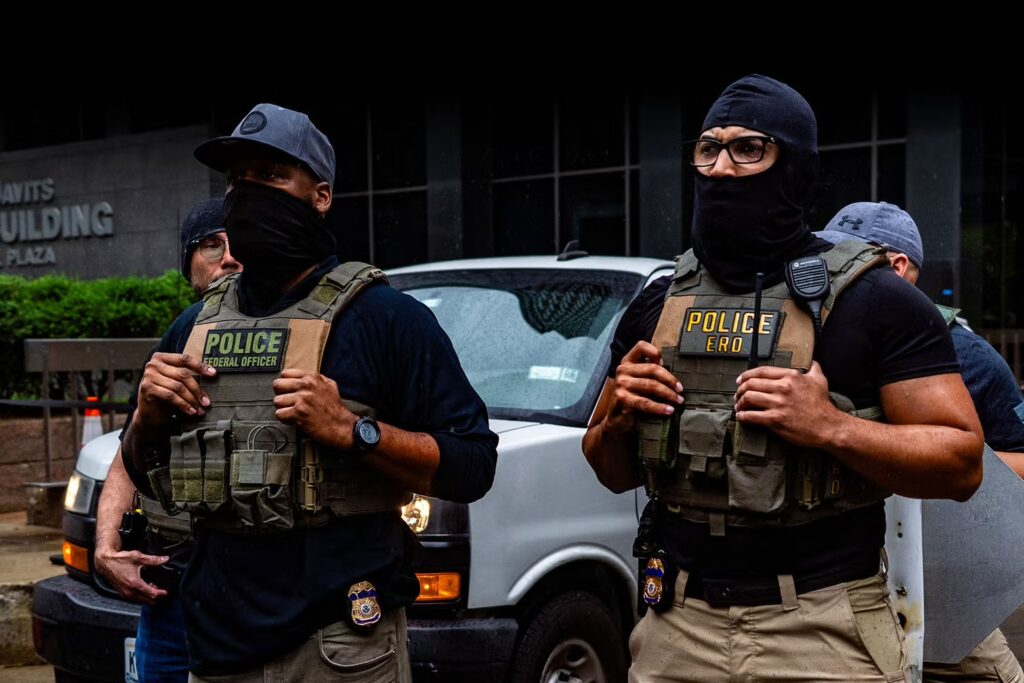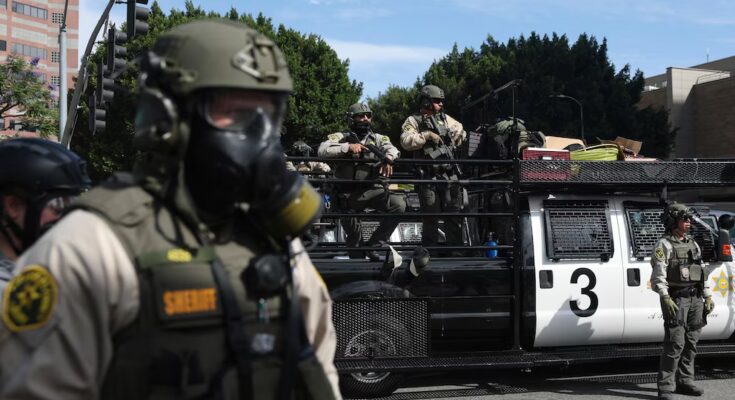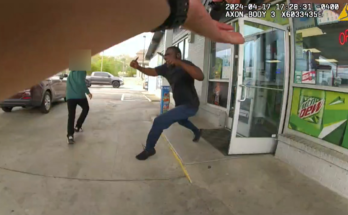
SACRAMENTO, Calif. — California state lawmakers have passed legislation that would ban most law enforcement officers from covering their faces while carrying out operations, a response to recent immigration raids in Los Angeles.
But even if the governor signs the measure into law, it’s unclear whether the state could enforce it on the federal agents who have been carrying out those raids.
It is the first such bill to be approved by a state legislature, though Democrats in Congress and lawmakers in several states, including Tennessee, Michigan, Illinois, New York, Massachusetts, and Pennsylvania, have introduced similar proposals calling for mask bans for law enforcement officers.
California’s legislation, approved in the Democratic-controlled Legislature on Thursday, is among a number of bills state lawmakers were considering this year in response to the immigration raids.
The bill would prohibit neck gator, ski masks and other facial covering for local and federal officers, including immigration enforcement agents, while they conduct official business. It makes exceptions for undercover agents, medical masks such as N95 respirators or tactical gear.

Gov. Gavin Newsom has about a month to decide whether to sign it into law. The Democratic governor has criticized federal agents’ use of masks while making arrests but in July also questioned the state’s authority over federal agents. His office said Friday it does not typically comment on pending legislation.
Proponents of the bill said the proposal is necessary, especially after the Supreme Court earlier this week ruled that the federal administration can resume the sweeping immigration operations for now in Los Angeles.
Assemblymember Juan Carrillo, vice chair of the Latino caucus, said the decision is “effectively allowing federal agents stop suspects based solely on their race, language, or job.”
“How is anyone supposed to reasonably believe that they are law enforcement officers and not masked individuals trying to kidnap you?” he said prior to the vote. “Imagine the absolute fear of being pulled over at gunpoint by a group of masked individuals.”
Supporters also cited an opinion from constitutional law expert Erwin Chemerinsky at the University of California, Berkeley to defend the proposal. A state cannot directly regulate the federal government, he wrote in an opinion piece for the Sacramento Bee, but that does not mean federal employees do not have to follow state rules “unless doing so would significantly interfere with the performance of their duties. For example, while on the job, federal employees must stop at red lights.”




